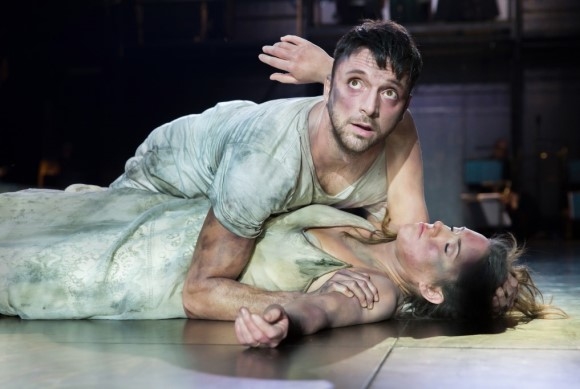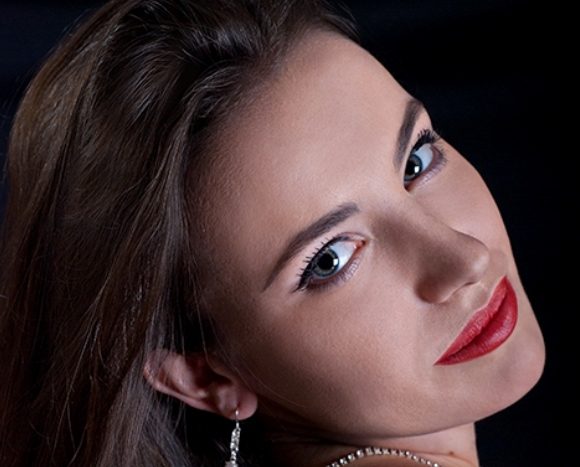Orfeo (Roundhouse)

© Stephen Cummiskey
Unlike Cavalli’s L’Ormindo, last year’s Royal Opera awayday (soon to be revived at the Sam Wanamaker Playhouse), there’s nothing ornate or gilded about Michael Boyd‘s take on Monteverdi’s first opera. Austere to a fault, his Orfeo has no truck with the bucolic idyll of the opera's opening acts and you’ll search in vain for a golden lyre. So when the doomed hero descends to the Underworld things stay pretty much as they were, just with dimmer lights.
The bare bones of the Orpheus myth were enough for Monteverdi, whose musician-poet, stricken with grief when his beloved Euridice dies, goes down to Pluto's realm and attempts to win her back. His wish is granted on one condition: he must never look at her while she follows him to the world above.
Boyd’s production is stylish and elegant, but it's debatable whether it would pass muster with a weaker company than this. Although designer Tom Piper provides a simple thrust stage that wraps the audience round three-quarters of a large disc, the former RSC boss directs his show with a disappointingly end-on sensibility. Viewed from the side, I can attest, this Orfeo offers a distinctly partial experience.
From a musical point of view, though, it’s completely ravishing. Christopher Moulds and the Orchestra of the Early Opera Company give distinguished support to a raft of (mostly) youthful singers who combine to sometimes devastating effect. They are led by the resonant, passionate Orfeo of Gyula Orendt, a Transylvanian baritone whose enunciation of Don Paterson’s flowing translation is all the more poetic for being lightly accented.
"Some fierce theatricality liberates the opera and its latent power hits home"
Most of the other singers, including Mary Bevan as his mellifluous Euridice, are limited to relatively brief appearances, but they all make their mark with vocal beauty and dramatic conviction. It’s especially fascinating to hear Anthony Gregory and Alexander Sprague, two tenors on the verge of stardom, sing in duet. Their voices, each a beautiful instrument but utterly distinctive, combine to magical effect.
Callum Thorpe and Rachel Kelly project lordly grace as Pluto and Prosperpina, while the rich mezzo of Susan Bickley shatters the joyous mood of Act Two as the Messenger who breaks the news of Euridice’s death. The exceptional chorus is provided by nine talented young singers from the Guildhall School of Music and Drama.
This ecstatic musical experience is given a visual counterpoint by the tumblers of East London Dance, agile youngsters whose kinetic zest gingers up the courtliness of the early scenes. Their presence is a mixed blessing: powerful in their depiction of the road to the Underworld but distracting in the expressive, stage-thumping solo thrashabout that illustrates Orfeo’s grief.
Boyd’s stripped-back concept sits uncomfortably during the opera’s ‘happy’ half, whose nod to the church-and-state-versus-the-individual cliché is as inconsequential as it’s half-baked (and in which Monteverdi’s shepherds are translated into pastors rather than pastori). But his depth of experience comes into its own once light gives way to shade and the audience is drawn in to Orfeo’s darkening world. In the final half hour, at last, some fierce theatricality liberates the opera and its latent power hits home.











